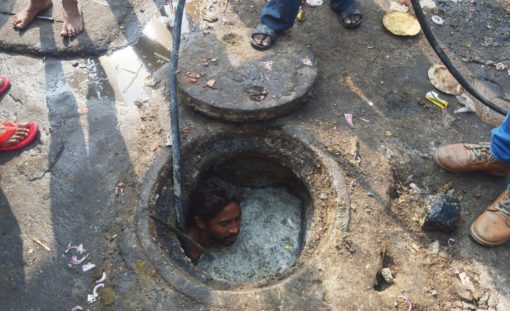
Discrimination is the anti-thesis of equality: these words encompass the true spirit of the Constitution of India. The words of Martin Luther King Jr., ‘Inequality anywhere is a threat to equality everywhere’, shine a light on the age-old banished and derogatory tradition of manual scavenging, which does not cease to exist, despite a statutory ban since 1993.
The erstwhile definition of manual scavenging under S. 2(j) of the Employment of Manual Scavengers and Construction of Dry Latrines (Prohibition) Act, 1993 was limited to removal of human excreta. However, due to non-implementation of the Act, there was not a single prosecution which was effected against the employment of any person(s) as Manual Scavengers.
Due to its ineffectiveness, the 1993 Act was overridden by the provisions under the Prohibition of Employment as Manual Scavengers and Their Rehabilitation Act, 2013. As per Section 2(g) of the latter Act, the definition of Manual Scavenger was widened to include insanitary latrines, open drain, pit, railway track, sewers and septic tanks.
It would be interesting to note that no comprehensive survey has been conducted by the Ministry of Social Justice and Empowerment on this issue.
On paper, the Act of 2013 appears to be a holistic and stringent law, under section 5 prohibiting the act of direct or indirect employment or engagement of a person as a manual scavenger pursuant to the commencement of the said Act construction or non-demolition of insanitary latrines and thereby penalizing the contravention under section 8 of the Act, and under section 7 prohibiting the non-termination of contracts of persons employed or engaged as manual scavengers prior to 2013 Act, thereby penalizing such contravention under section 9 of the Act. Yet, not a single prosecution has been carried out since its initial prohibition under the Act of 1993.
Surprisingly so, both the 1993 and 2013 Acts under sections 18 and 10, respectively, impose a self-defeating limitation on prosecution, wherein no Court can entertain any complaint for any offence under the said Act after a period of three months from the contravention.
In our opinion, there appears to be no intelligible differentia to justify such limitation and the same amounts to colorable legislation wherein the erring officials, agencies, local authorities can take advantage of their own-wrongdoing. This is primarily a reason why none of the aforesaid persons have been convicted or even prosecuted for directly or indirectly employing or engaging a person as a manual scavenger.
Moreover, it is astonishing why the only data on number of manual scavengers engaged or employed is limited to persons dealing with human excreta and that of persons entering sewers, septic tanks, drains, cleaning railway tracks has not been made available since 2013.
Furthermore, the question arises whether the rationale behind prohibiting manual scavenging under the Act of 2013 and then permitting the same under the garb of providing protective gears as per Prohibition of Employment as Manual Scavengers Rehabilitation Rules, 2013, yet again amounts to colourable legislation.
Lastly, why the actual number of direct and incidental deaths arising out of manual scavenging in the last 26 years have not been brought to light? Are we inching towards a society with a notional belief that rights and justice devolve not as a birthright but depend on the socio-economic status?




